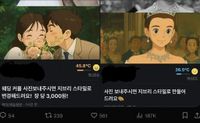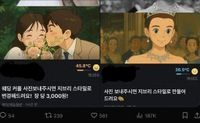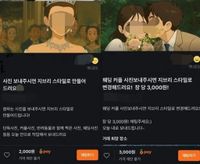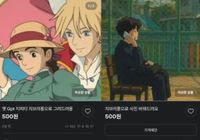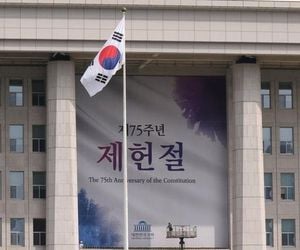As the trend of creating images in the style of Studio Ghibli using OpenAI's ChatGPT gains momentum, major used goods platforms like Danggeun Market and Bunjangter are stepping in to restrict such transactions. This move comes amid rising concerns over quality assurance and potential copyright infringement.
On April 10, 2025, NewsTomato reported that the popularity of transforming photos into Ghibli-style images has led to a surge in users offering these services for a fee. Following the release of the image generation function of ChatGPT-4o on March 25, 2025, users can easily convert their photos into the beloved animation style with simple commands.
Sam Altman, CEO of OpenAI, even transformed his own profile picture on X (formerly Twitter) into a Ghibli-style image, setting off a trend that quickly spread as celebrities joined in. However, as the trend took off, some users began offering paid services to convert photos into Ghibli style, prompting platforms to take action.
Danggeun Market explicitly prohibits the sale of items that cannot be verified in condition, including AI-generated images. The platform stated, "We restrict transactions of AI-generated images due to concerns that buyers cannot verify the quality of the final product, which may lead to disputes." They do allow the sale of completed drawings and illustrations created through AI tools, but reserve the right to remove content that infringes on others' rights.
Similarly, Bunjangter has taken a firmer stance, classifying all products intended for commercial sale that include AI-generated images as restricted. In an announcement, they stated, "The criteria for copyright and ownership of AI-generated images are not yet clear, and transactions of such products may lead to disputes and legal issues." As a result, they are actively removing listings related to AI-generated images.
The rise of this trend has sparked diverse opinions within the AI industry. Experts caution that without clear legal standards, the indiscriminate use of AI-generated images could lead to copyright infringement and privacy violations. One industry official remarked, "Just because there are no legal standards doesn't mean it's ethically permissible. Users should be cautious and not focus solely on the novelty of the technology."
On the used goods platforms, users have been posting offers to transform their photos into Ghibli-style images for prices ranging from 500 to 3000 won. For example, posts state, "Send me your photo, and I will create a Ghibli-style image for you," or "I will change your wedding couple photo into Ghibli style." This commercialization of AI-generated images has raised eyebrows, with some arguing that it could constitute copyright infringement.
Despite the platforms' efforts to enforce restrictions, the posts continue to appear. Reports indicate that even after the crackdown, 3-5 related posts are still being uploaded daily, raising questions about the effectiveness of these measures.
The debate over copyright infringement is ongoing. While some argue that using another artist's style for commercial purposes is a clear violation, others contend that it's too early to label these practices as infringement. Notably, Studio Ghibli has not yet made an official statement regarding these concerns, leaving a gray area in the legal landscape.
OpenAI has revealed that over 100 million users have generated more than 700 million images related to Ghibli styles, with over 5 million users in South Korea alone. As AI technology becomes more accessible, the implications for copyright and ownership continue to evolve.
The Personal Information Protection Commission has also weighed in, stating that while there haven't been reports of privacy violations, the potential for such issues exists as users input their personal photos into the AI.
In summary, the intersection of AI technology and copyright law is becoming increasingly complex. As platforms like Danggeun Market and Bunjangter navigate this new landscape, users must remain vigilant about the implications of their transactions and the potential legal ramifications of using AI-generated images.
